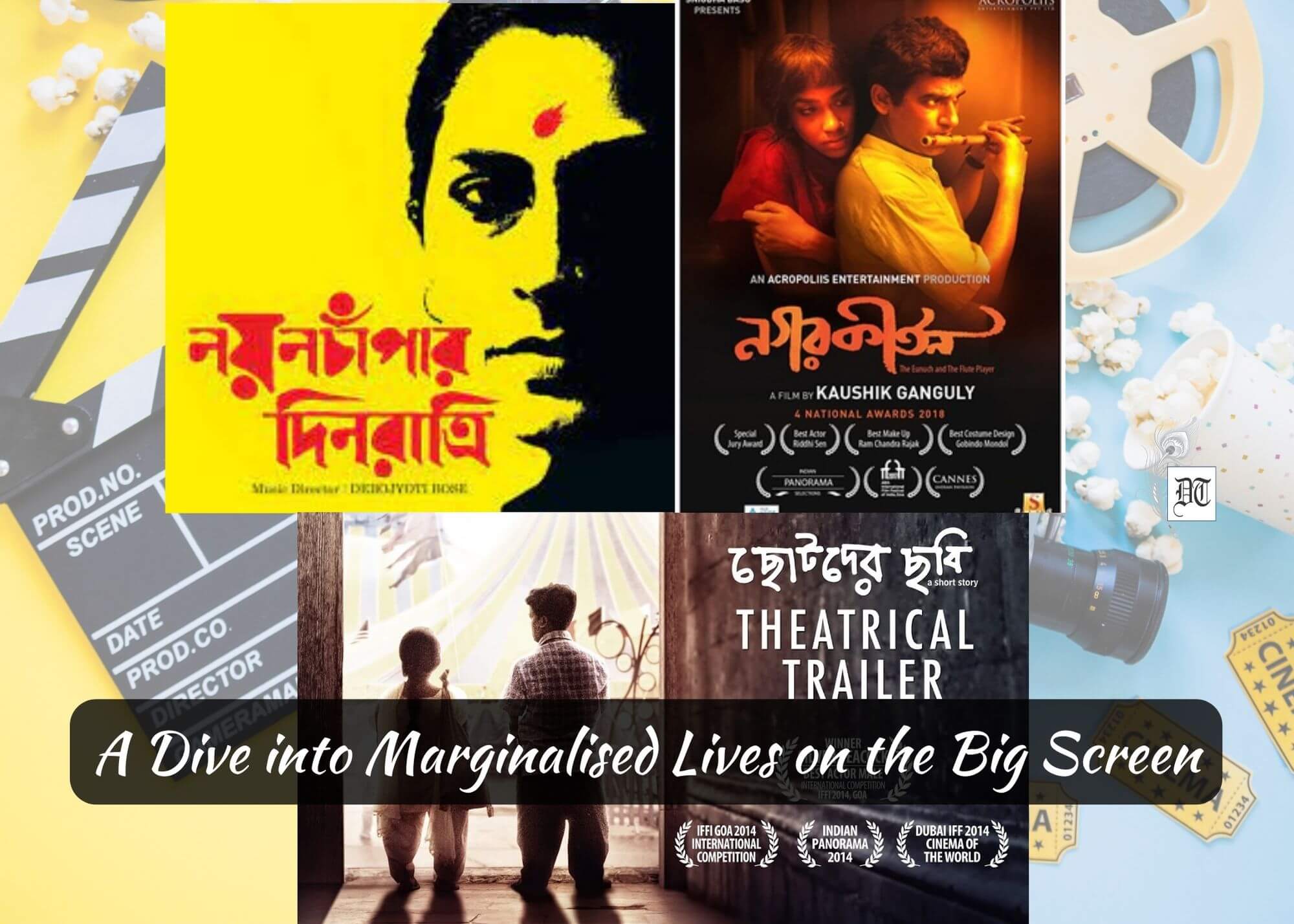Bengali films provide a unique perspective on Indian society, contrasting mainstream commercial cinema with socially relevant content, highlighting domestic helpers, transgender struggles, and dwarfism. A review by Ruchira, exclusively for different truths.

Indian cine-goers by and large are piled with commercial films (aka potboilers), irrespective of whether they are made in Hindi or in any of the myriad vernaculars. However, a handful of discerning (read: sensitive, empathetic) directors attempt to experiment with socially relevant topics and themes (call it what you please), which endear them to at least certain specific sections of society, if not the public.
I had the opportunity to watch a few off-beat Bengali films that focused on the largely neglected, marginalised sections of pan-Indian society. Such flotsam and jetsam human beings live around us, or amidst us, but we pay scant regard to their lives and emotions. This is rather unfortunate indeed.
For urban women—both working ones as well as homemakers—life almost comes to a grinding halt the day the kaam wali bai doesn’t turn up. Yet how many of us bother to find out how they live, and what experiences they undergo in their daily lives?
Nayanchampar Dinratri by Shekhar Das vividly depicts the dreary, monotonous…lives of domestic help/caregivers/maids.
Nayanchampar Dinratri by Shekhar Das vividly depicts the dreary, monotonous (read subhuman) lives of domestic help/caregivers/maids. The three leading characters, Nayanchampa (Rupa Ganguly) Champi (Chandrayee Ghosh) and Malati (Daminee Basu) awaken at the crack of dawn, finish their respective household chores, catch a local to the metropolis, and perform tedious jobs in a series of households. At the end of the day, they return home to face grim poverty, hungry, often sick children, or drunken and abusive spouses. No matter how hard they toil, there’s no escape from this grim, sordid reality. The director appears ruthless while delving into their lives. There is an utter lack of sugarcoating and melodrama. The highlight of the film is the simple script and convincing performances by all the actors.
Kaushik Ganguly’s Nagar Kirtan is bound to hold spontaneous appeal to the bulk of Indians who are forced to live darkened lives because they cannot blend their sexual identities and desires with social expectations. The film features the interplay of emotions between Parimal (Riddhi Sen), who is born a male but later chooses to live as Puti, a transgender, and Madhu (Ritwick Chakraborty), a flute player. The backdrop of the film is rural Bengal, with the major characters being kirtaniyas (professional devotional music players). Whether the amorous duo is meant to symbolise the new-age Radha-Krishna remains ambiguous until the climax. Madhu, who earns his living as a food delivery guy, and Puti, who sings at traffic signals, appear to the viewers as fiercely struggling to survive in a world of rootlessness and yet yearning to build a love nest for them. Kudos to Ganguly for taking up a bold and unconventional topic. By projecting a transgender person as the leading player in the film, the director has grabbed a niche for such issues in the Indian tinsel world.
Chhotoder Chhobi: The film is not about little children, as the title seems to suggest.
Chhotoder Chhobi: The film is not about little children, as the title seems to suggest. On the contrary, it peeks into the lives of midgets, who are unfortunate victims of a congenital defect termed dwarfism and are unusually short human beings. They are completely normal, like you and me, except for their height. Following a nasty accident during a stunt, trapeze artist Shibu is left paralyzed and bedridden. The manager of the circus hands out a meagre amount of Rs. 15,000 as compensation to Shibu’s family. This heartless gesture leaves Shibu’s junior colleagues and friends fuming. Sadly, they are unable to rise in revolt since the circus is their means of livelihood. Soon afterwards, when Shibu commits suicide, his closest friend, Khoka (Dulal Sarkar), decides to shoulder total responsibility for the family in distress. He quits his job, befriends Shibu’s daughter, Soma, and shares her struggle. As the drama unfolds, the conflict between two unequal worlds and the trials and tribulations of these hapless characters come to the forefront. The director (again Kaushik Ganguly) effectively drives home the truth that despite their short stature, the dwarfs can harbour liberal thoughts and beliefs. The mutual bonding between Khoka and Soma appears to symbolize that two hearts beating within their minuscule frames are capable of love just like those of their “normal” counterparts.
Picture design by Anumita Roy






 By
By

 By
By